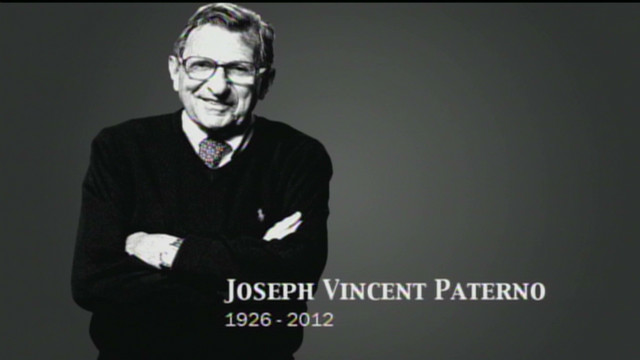January 22, 2012 marked a day of sadness in college
football.
Joe Paterno, one of the greatest icons ever in the sport,
passed away from lung cancer at the age of 85.
Looking back at the last two months, part of his legacy took
a hit thanks to the Jerry Sandusky sex-abuse scandal and what Paterno did not
do in order to stop it. However, Paterno was a man that stood for integrity and
honor.
At a time where many coaches change jobs just like clothes,
Paterno was the head coach at Penn State for an outstanding 46 years and had
been at Happy Valley since 1950.
At Paterno’s memorial Jan. 26, former Penn State quarterback
Todd Blackledge said,
“No one individual has ever done more for a university anywhere in the country
than what Joe Paterno did for this school.”
During his tenure at Penn State, he won 409 games, two
national championships, and each of the five major bowl games—Cotton, Fiesta, Orange,
Rose and Sugar.
Even when he had four losing seasons in five years from
2000-2004 and numerous people calling for him to step down, Paterno bounced
back to lead the Nittany Lions to an 11-1 season in 2005. This included the Big
Ten title and a thrilling triple-overtime against fellow coaching legend Bobby
Bowden and his Florida State Seminoles.
In his last game—a hard-fought 10-7 victory over Illinois in
the snow—Paterno passed former Grambling coach Eddie Robinson for most
victories by a Division I head coach.
After that game, his son and assistant coach Jay said, “This might be one of the
best jobs Joe’s done of coaching, getting kids to buy into team-first, just
win, the whole nine yards. Don’t worry about personal accolades, personal
statistics. Don’t worry about playing time. Just (concentrate on) we’re going
to continue to win.”
While doing so, he wanted his players to not only exceed on
the field but off of it too, and doing so in a fair way.
In 2008, their Graduation Success Rate was at 78 percent
according to the NCAA
Graduation Rates Report. At the same time, the Nittany Lion football
program had never
been placed on probation.
Sadly, on Nov. 9, his coaching career came to an abrupt end following
the Sandusky allegations and doctors diagnosed him with lung cancer shortly
thereafter.
Still he was respected and supported by his peers such as former
Penn State football player Charles V. Pittman.
Pittman said,
“Despite being pushed away from his beloved game, and under the extreme
pressure of the events of the past few months, Joe’s grace was startling.”
Whether he did or did not do enough or more than the minimum
to stop the scandal in its tracks is a different story for a different time.
However, his overall contributions should still be well noted.
